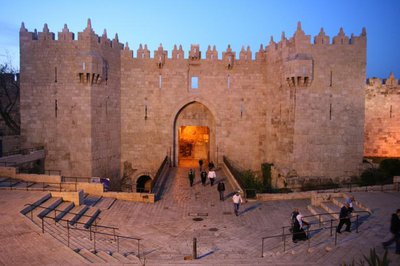Thoughts for the Day
Tuesday, 22nd August 2023: David the king
David King Saul 2 Samuel 5 Yahweh King David
Reading : Verses from 2 Samuel, Chapter 5

Then all the tribes of Israel came to David at Hebron, and said, ‘Look, we are your bone and flesh. For some time, while Saul was king over us, it was you who led out Israel and brought it in. The Lord said to you: It is you who shall be shepherd of my people Israel, you who shall be ruler over Israel.’ So all the elders of Israel came to the king at Hebron; and King David made a covenant with them at Hebron before the Lord, and they anointed David king over Israel. David was thirty years old when he began to reign, and he reigned for forty years. At Hebron he reigned over Judah for seven years and six months; and at Jerusalem he reigned over all Israel and Judah for thirty-three years.
The king and his men marched to Jerusalem against the Jebusites, the inhabitants of the land, who said to David, ‘You will not come in here, even the blind and the lame will turn you back’—thinking, ‘David cannot come in here.’ Nevertheless, David took the stronghold of Zion, which is now the city of David. David had said on that day, ‘Whoever wishes to strike down the Jebusites, let him get up the water shaft to attack those whom David hates.’ David occupied the stronghold, and named it the city of David. David built the city all around from the Millo inwards. And David became greater and greater, for the Lord, the God of hosts, was with him.
King Hiram of Tyre sent messengers to David, along with cedar trees, and carpenters and masons who built David a house. David then perceived that the Lord had established him king over Israel, and that he had exalted his kingdom for the sake of his people Israel.
(Lectionary, New Revised Standard Version)
Thoughts
We have periodically looked at David as a warrior, a musician, a dancer, and as a refugee from King Saul's machimations, now we see him anointed as King over all of Israel. Bur between the occasion of Saul's death and David's crowning as King, David must first return from exile in Philistia and be welcomed back by his tribe of Judah, where he becomes their king at Hebron. For the next seven years he reigns as a kind of Philistine vassal, while tensions continually flare between the remnant of the House of Saul and that of David. When he manages to bring together the twelve tribes, the Philistines begin to see the danger, but it is too late. David finally defeats them along with five other nations to the north and east of Israel's tribal lands. He is now recognised as the ruler of a kingdom stretching from the mountains of Lebanon to the border of Egypt, and from the Mediterranean sea to the deserts of Arabia, for as the writer says, 'The Lord, the God of hosts, was with him'. David understands that this was achieved for the sake of God's people.
But David was more than a brilliant military commander. He wanted to bring the different tribes closer together and to do so he used the idea of the monarchy and the throne to attract them. One of his most brilliant moves was to capture the old fortress of Jerusalem from the Jebusites, who boasted he couldn't achieve this. Jerusalem had never been part of the tribal system, and was claimed by neither the northern or southern tribes. David's men were to capture the city by climbing up the water shaft. With its ramparts strengthened, and covenants made with surrounding kingdoms this 'City of David' was to become a rich and powerful centre for the worship of Yahweh.
Prayer
Lord God,
You were with David
throughout his life,
inspiring and encouraging him.
When he faltered, and failed You,
You called him back to repent of his ways,
and always You were there to guide him
to lead Your people.
May we too listen to Your word
and follow Your commands,
and repent when we go astray.
Amen.
Here is enough facts about King David to keep all those who want more information about him happy:
You might also like to find out more about why the twelve tribes divided into two separate kingdoms: